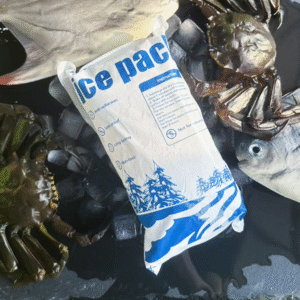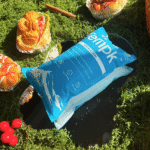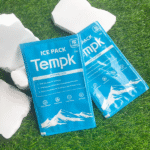Pelatihan Manajemen Rantai Dingin Farmasi: Why Is It Crucial for Your Business?
Pharmaceutical cold chain management training is essential for ensuring that temperature-sensitive products are transported and stored correctly. A well-managed cold chain system guarantees the safety and efficacy of products like vaccines and biological samples. Dalam artikel ini, we will explore why training is crucial for your business and how it impacts your operations.
-
What is pharmaceutical cold chain management training, and why is it vital?
-
How can proper training minimize the risks associated with pharmaceutical cold chain logistics?
-
What are the key elements of an effective cold chain training program?
-
More insights on the importance of training for maintaining compliance and ensuring product safety.
What is Pharmaceutical Cold Chain Management Training, and Why is it Vital?
Pharmaceutical cold chain management training is the process of educating employees and stakeholders on handling temperature-sensitive products throughout their lifecycle—from production and storage to transportation. This training ensures that the correct temperature conditions are maintained during each phase, mencegah pembusukan, kontaminasi, or degradation of the products.
Proper training is crucial because:
-
Cold chain management minimizes the risks of compromising product quality, especially for biologics, vaksin, dan obat-obatan sensitif suhu lainnya.
-
Training ensures regulatory compliance with standards like Good Distribution Practice (PDB) dan Praktek Manufaktur yang Baik (GMP), helping businesses avoid penalties.
-
It enhances the safety of the end-user, ensuring that patients receive products that are safe and effective.
Key Components of a Pharmaceutical Cold Chain Management Training Program
An effective training program should include the following elements:
-
Memahami Logistik Rantai Dingin: This involves learning about the different stages of the cold chain and the risks associated with each.
-
Temperature Control Techniques: Training employees on the importance of monitoring temperature, including using data loggers and thermal packaging solutions.
-
Emergency Protocols: Employees need to know how to handle emergencies such as temperature excursions, kegagalan daya, and transportation delays.
-
Kepatuhan Pengaturan: Understanding the global and local regulations that govern the cold chain management of pharmaceuticals.
| Komponen | Keterangan | Dampak terhadap Operasional |
|---|---|---|
| Memahami Logistik Rantai Dingin | Teaches the journey of temperature-sensitive products | Improves product handling efficiency |
| Temperature Control Techniques | Focuses on correct storage and transport methods | Reduces the risk of product spoilage |
| Emergency Protocols | Prepares staff for temperature excursions | Ensures quick response to critical issues |
| Kepatuhan Pengaturan | Focuses on industry regulations and standards | Maintains legal compliance and avoids penalties |
Practical Tips for Implementing Cold Chain Management Training
-
Leverage Real-Life Scenarios: Use case studies to show how poor cold chain management led to product recalls or spoilage.
-
Interactive Training: Create engaging training modules that allow employees to simulate various cold chain scenarios, such as handling an emergency or monitoring temperatures using advanced technologies.
-
Hands-On Training: Offer hands-on training with temperature-controlled equipment to ensure that employees are comfortable using the tools they will encounter on the job.
Contoh dunia nyata: A global pharmaceutical company implemented a comprehensive cold chain management training program for their logistics team. Sebagai akibat, they reduced the number of product temperature excursions by 40% in the first year of the program.
Why is Proper Cold Chain Training Crucial for Minimizing Risks?
Pharmaceutical cold chain logistics involve handling products that are vulnerable to temperature changes. A minor deviation from the required temperature range can have serious consequences, such as reduced efficacy, kontaminasi, or even harmful side effects for the end user.
Key risks minimized by proper training:
-
Product Degradation: Tanpa penanganan yang tepat, sensitive products like vaccines may lose their potency, menjadikannya tidak efektif.
-
Pelanggaran Peraturan: Cold chain mishandling can result in fines or recalls from health authorities. Proper training ensures compliance with international guidelines, such as the WHO’s recommendations on vaccine storage.
-
Customer Trust: A company’s reputation is built on its ability to deliver safe and effective products. Training helps maintain this trust by ensuring products are always delivered in the best condition.
Handling Temperature Excursions and Emergencies
Temperature excursions are the most common risk in cold chain logistics. Properly trained staff can identify these issues quickly and take corrective actions before any damage occurs.
-
Monitor Temperature in Real-Time: Use real-time monitoring devices to track product temperature during transportation and storage.
-
Immediate Action: If an excursion is detected, staff should know the steps to take—such as identifying the source of the problem, taking corrective actions, and notifying relevant stakeholders.
Regulatory Compliance and Its Role in Training
The pharmaceutical industry is heavily regulated, and maintaining compliance with these regulations is critical. Training programs should cover the following regulations and standards:
-
Praktek Distribusi yang Baik (PDB): GDP ensures that pharmaceutical products are consistently stored, diangkut, and handled under suitable conditions.
-
Praktek Manufaktur yang Baik (GMP): This guideline ensures that pharmaceutical products are consistently produced and controlled according to quality standards.
-
Organisasi Kesehatan Dunia (SIAPA) Pedoman: The WHO outlines specific temperature requirements for vaccines and other sensitive products, which must be followed to avoid spoilage.
Latest Trends and Developments in Pharmaceutical Cold Chain Management
Di dalam 2025, pharmaceutical cold chain management is evolving with new technologies and industry best practices. These developments are shaping how pharmaceutical companies manage their logistics and ensure product safety.
Tren yang Muncul:
-
Pengemasan Cerdas dan Sensor IoT: The use of smart packaging solutions is growing. These systems include temperature and humidity sensors that transmit real-time data to monitoring platforms.
-
Analisis Prediktif yang Didukung AI: Kecerdasan Buatan (Ai) is increasingly being used to predict potential temperature fluctuations or risks, allowing companies to take preventive measures before issues arise.
New Technologies Impacting Cold Chain Management
-
Perangkat Pemantau Rantai Dingin: Innovative temperature loggers and GPS devices are being used to track product shipments in real-time.
-
Blockchain untuk Transparansi: Blockchain technology is being explored to ensure the integrity of pharmaceutical shipments by providing a transparent, tamper-proof record of product movement.
-
Artificial Intelligence for Risk Management: AI can analyze data from cold chain monitoring systems to predict and mitigate potential risks before they occur.
FAQ
What is the importance of cold chain management training for pharmaceutical companies?
Cold chain management training is essential for ensuring that temperature-sensitive products are handled properly, reducing the risks of product degradation and ensuring compliance with regulations.
How can cold chain training help in minimizing risks during transportation?
Proper cold chain training teaches staff how to monitor temperatures in real-time and act quickly if there is a temperature excursion, minimizing the risks of product spoilage.
Kesimpulan dan Wawasan yang Dapat Ditindaklanjuti
Sebagai kesimpulan, pharmaceutical cold chain management training is an investment that ensures the integrity, keamanan, and efficacy of products throughout their lifecycle. By educating staff on the best practices for handling temperature-sensitive products, businesses can reduce risks, menjaga kepatuhan, dan membangun kepercayaan pelanggan.
Langkah yang dapat ditindaklanjuti:
-
Develop a tailored cold chain training program based on the unique needs of your business.
-
Invest in the latest technology for real-time temperature monitoring.
-
Regularly update training materials to reflect the latest regulatory changes and technological advancements.
Dengan mengambil langkah-langkah ini, pharmaceutical companies can enhance their cold chain management systems and ensure that their products always meet the highest safety and quality standards.
Tentang tempk
Tempk specializes in advanced cold chain solutions tailored to the pharmaceutical industry. Produk kami, including smart temperature monitoring systems, ensure your temperature-sensitive products are stored and transported safely, meeting the most stringent regulatory requirements.
Hubungi kami hari ini for a consultation on improving your cold chain logistics.


















